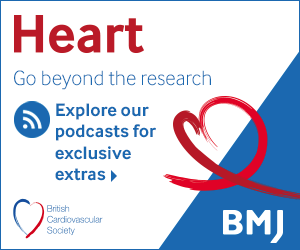Evidence that supports the prescription of low-carbohydrate high-fat diets: a narrative review

"Low-carbohydrate high-fat (LCHF) diets are a highly contentious current topic in nutrition. This narrative review aims to provide clinicians with a broad overview of the effects of LCHF diets on body weight, glycaemic control and cardiovascular risk factors while addressing some common concerns and misconceptions. Blood total cholesterol and LDL-cholesterol concentrations show a variable, highly individual response to LCHF diets, and should be monitored in patients adhering to this diet."
"Evidence that supports the prescription of low-carbohydrate high-fat diets: a narrative review" source
"In contrast, available evidence from clinical and preclinical studies indicates that LCHF diets consistently improve all other markers of cardiovascular risk—lowering elevated blood glucose, insulin, triglyceride, ApoB and saturated fat (especially palmitoleic acid) concentrations, reducing small dense LDL particle numbers, glycated haemoglobin (HbA1c) levels, blood pressure and body weight while increasing low HDL-cholesterol concentrations and reversing non-alcoholic fatty liver disease (NAFLD). This particular combination of favourable modifications to all these risk factors is a benefit unique to LCHF diets. These effects are likely due in part to reduced hunger and decreased ad libitum calorie intake common to low-carbohydrate diets, allied to a reduction in hyperinsulinaemia, and reversal of NAFLD. Although LCHF diets may not be suitable for everyone, available evidence shows this eating plan to be a safe and efficacious dietary option to be considered. LCHF diets may also be particularly beneficial in patients with atherogenic dyslipidaemia, insulin resistance, and the frequently associated NAFLD.
Introduction
Imagine a obese (BMI=32 kg/m2) woman aged 57 years with other evidence for insulin resistance (IR), including hyperinsulinaemia and impaired glucose tolerance together with atherogenic dyslipidaemia (AD) (triglyceride (TG)=340 mg/dL (8.8 mmol/L), HDL-cholesterol (HDL-C)=42.4 mg/dL (1.1 mmol/L), LDL-cholesterol (LDL-C)=195 mg/dL (5.05 mmol/L)) who enters her family physician's office. Frustrated with her poor health and progressive weight gain, on the advice of a friend, she has decided to begin a low-carbohydrate high-fat (LCHF) Atkins-type diet. How should her physician respond? What evidence does the physician require to make an informed decision?
LCHF diets have polarised the opinions of medical caregivers, especially since the publication of Dr Atkins' Diet Revolution in 1972. Some believe that these diets effectively treat type 2 diabetes mellitus (T2DM), obesity and metabolic syndrome.Others consider them to be simply a fad4 in conflict with current globally accepted dietary guidelines that advocate low-fat high-carbohydrate (LFHC) diets to reduce the risk of cardiovascular disease.5 ,6 Faced with such conflicting opinions, the clinician may be unsure how to advise this or other similar patients. Here, we provide an updated narrative review of the large body of published evidence describing the physiological effects, efficacy and safety of LCHF diets for the management, especially of this type of patient characterised by IR and AD."
"Evidence that supports the prescription of low-carbohydrate high-fat diets: a narrative review" source, read more
